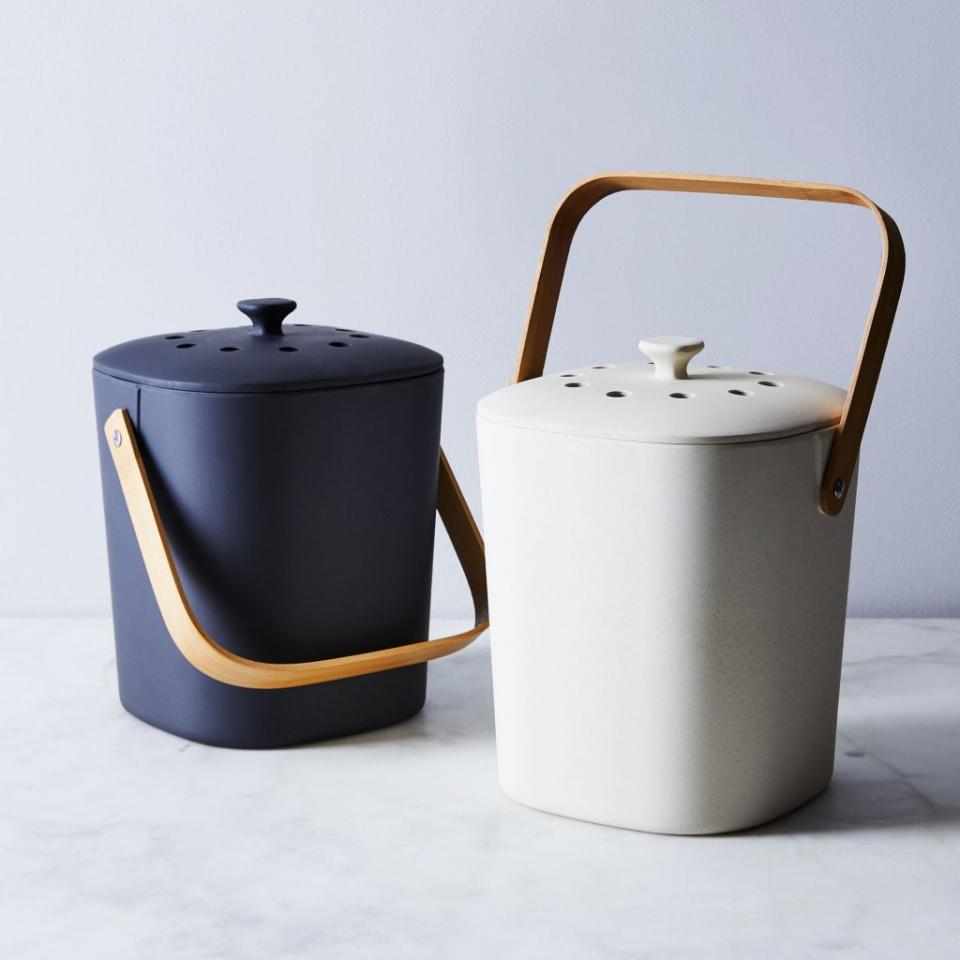Sustainability blogger shares 5 easy ways to start living a more eco-friendly lifestyle
In 2014, an 18-year-old Manuela Barón decided that she wanted to see the world. Upon graduating high school, the curious teen moved abroad and started traveling everywhere — Berlin, Morocco, Myanmar and the list goes on.
Barón wasn’t taking in the sights quite like a normal teenager, though. Everywhere she went, she was acutely aware of the heaps of refuse bestrewing the Earth, and it was all she could think about.
“I kept noticing one common theme throughout all my adventures: litter. Everywhere I went I encountered trash,” she told In The Know. “I became fascinated with waste and from that stemmed the idea to change my own trash habits.”
Barón’s real aha moment came when she was on a flight back to Paris, her home base while she was living overseas. The flight attendants kept bringing her water in plastic cups, she explained, and at the end of the flight, she had enough cups to create an entire stack.
“I came to the realization that I, Manuela Barón, am part of the problem, so I decided to be part of the solution,” she said.
In 2015, Barón put her money where her mouth is. Not only did the teen successfully challenge herself to adopt a zero-waste lifestyle, but she also founded The Girl Gone Green, a platform to “educate and bring awareness on eco-issues and solutions.” On her YouTube channel of the same name, she highlights her own zero-waste journey and helps others transition to a more environmentally friendly lifestyle with useful tips and tricks.
A post shared by Manuela Barón (@thegirlgonegreen) on Aug 21, 2020 at 2:46pm PDT
One of the things Barón aims to do with her platform is dispel the myths surrounding a zero-waste lifestyle — particularly that it’s too expensive to adopt.
“Zero Waste is not expensive unless you want it to be expensive,” she explained. “A lot of the Zero Waste products and essentials that people add on their blogs aren’t essentials. Most of the time you have these things in your home already. For example, you don’t need a wooden toilet bowl cleaner because you most likely have a plastic one already — so why are you buying a new one? That’s unsustainable. The idea that you have to go out and buy and replace all your items with glass or replace all your items with something else is ridiculous.”
Since transitioning to a zero-waste lifestyle, Barón says that she has actually saved “a ton of money” by utilizing what she has. “I simply buy less stuff and waste less food and resources,” she explained. “It taught me to be a conscious consumer, not a sustainable one.”
As Barón knows all too well, making that conversion over to a zero-waste lifestyle isn’t always smooth. When she was first starting out, she said that she often felt “disillusioned” and “overwhelmed,” especially when it felt like nobody around her cared about the environment like she did.
However, change is possible. Barón shared five things you can do right now to start living a more sustainable lifestyle.
1. Invest in a safety razor.
Shop: Package Free 3-Piece Razor, $25

Instead of using disposable razors, Barón suggested investing in a safety razor. “By doing this, [you] can just buy the razor blades and [you] can actually recycle those with scrap metals,” she explained.
2. Buy sustainable beauty products.
Shop: Public Goods Shampoo Bar, $5.50

When it comes to the environment, not all beauty products are created equal. Traditional shampoo containers are made of wasteful plastic, for instance, which is why Barón opts for bar shampoos. If that’s not your thing, she added that “there are amazing companies out there that sell refillable body washes [and] shampoos.”
3. Use reusable produce bags.
Shop: Five Two Organic Cotton Reusable Produce Bags (Set of 8), $29

Those plastic produce bags that we use at the grocery store are super wasteful. Barón suggested skipping those and instead either investing in reusable produce bags or just ditching bags altogether. “Put your produce in your cart and then wash them really thoroughly when you get home!”
4. Compost!
Shop: Food52 x Bamboozle Bamboo Compost Bin, $40

Organic food scraps belong in a compost bin, not a trash can. As Barón explained, if you throw away a head of lettuce in the trash, it can take up to 25 years to decompose in a landfill. If composting is too daunting of a task for you, find a neighbor or a friend nearby who has a compost bin that you can use!
5. Focus on the items you already have.
“A lot of people in the zero-waste movement will encourage you to purchase this fancy thing, but most likely you already have a great alternative at home,” Barón said. “Focus on the Tupperware you already have, on getting a good life out of your water bottle. It is one of the most sustainable things you can do.”
Our team is dedicated to finding and telling you more about the products and deals we love. If you love them too and decide to purchase through the links below, we may receive a commission. Pricing and availability are subject to change.
For more sustainable living tips, check out this eco-friendly sandwich-packing hack.
More from In The Know:
Canners are making New York more eco-friendly
This eco-friendly cleaning brand can help reduce your carbon footprint
This eco-friendly online store is like “a sustainable version of Nordstrom”
7 top-rated air purifiers to add to your work-from-home set up
The post Sustainability blogger shares 5 easy ways to start living a more eco-friendly lifestyle appeared first on In The Know.

